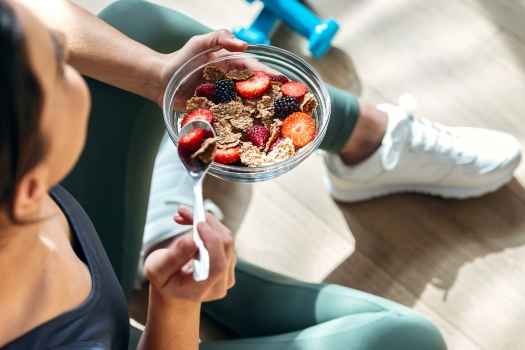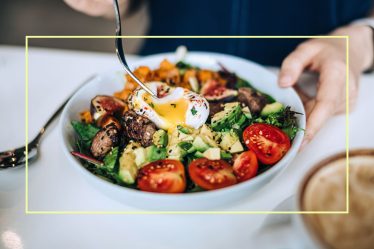
Introduction
Food is so much more than fuel—it’s culture, comfort, identity, and medicine. In today’s fast-paced world, many of us have developed a complicated relationship with what we eat. Between fast food convenience and social media trends, it’s easy to forget the most important truth: the food we consume has a direct impact on how we feel, think, and live. By making more mindful choices, we can improve our health, boost our energy, and even elevate our mood—one bite at a time.
Food and Physical Health: Building a Stronger Body
The foundation of physical health starts with what’s on your plate. The nutrients in food affect every cell, organ, and system in your body—from your heart to your hormones.
Fueling Your Body the Right Way
A balanced diet includes carbohydrates for energy, proteins for muscle repair, healthy fats for brain function, and fiber for digestion. Eating a variety of whole foods like fruits, vegetables, legumes, whole grains, lean proteins, and healthy fats ensures your body gets what it needs to perform at its best.
Immunity Starts in the Gut
Did you know that nearly 70% of your immune system lives in your gut? A diet rich in fermented foods (like yogurt, kimchi, or kefir), fiber, and antioxidants helps maintain a healthy gut microbiome, which in turn strengthens your immune defense and reduces inflammation.
Food and Mental Health: What You Eat Affects How You Feel
The connection between food and mental well-being is gaining more attention in scientific research—and for good reason. Your brain is always “on,” and it needs proper fuel to function optimally.
The Gut-Brain Connection
Your gut and brain communicate constantly through the gut-brain axis. Foods rich in probiotics and prebiotics not only support digestion but also influence your mood and mental clarity. Studies show that a diet high in sugar and processed foods is linked to depression and anxiety, while a diet high in whole, nutrient-dense foods improves emotional resilience.
Nutrients That Boost Mood
Certain nutrients—like omega-3 fatty acids (found in fish and flaxseed), B vitamins (from leafy greens and eggs), and magnesium (in nuts and dark chocolate)—can directly support brain health and reduce symptoms of stress and fatigue. Hydration also plays a big role, so drink that water!
Food Culture: Celebrating Traditions and Togetherness
Food is also about experience and connection. Across all cultures, meals are moments of bonding, storytelling, and tradition. From shared holiday dishes to family recipes passed down for generations, food is a universal language of love and identity.
The Joy of Cooking at Home
Preparing your own meals not only gives you control over ingredients but also strengthens your relationship with food. Cooking can be a creative, therapeutic process—and eating at home often encourages healthier habits and deeper family connections.
Mindful Eating and Gratitude
Slowing down and savoring your food allows you to enjoy each bite and recognize fullness cues. Practicing gratitude before meals can shift your mindset from stress to appreciation, creating a more nourishing experience.
Modern Food Trends: What to Embrace (and What to Avoid)
With so many diets and food philosophies online, it’s easy to feel overwhelmed. While some trends offer real benefits, others can lead to confusion or even harm.
What’s Worth Trying
- Plant-based eating: Not just for vegans—adding more plant foods supports heart health and lowers inflammation.
- Meal prepping: Saves time, money, and makes healthy eating convenient.
- Functional foods: Foods with added benefits like turmeric, matcha, chia seeds, and mushrooms are trending for a reason—they support energy, immunity, and focus.
What to Be Cautious Of
- Extreme restriction: Cutting out entire food groups without a medical reason can lead to nutritional imbalances.
- Fad diets: If a diet sounds too good to be true, it probably is. Focus on long-term habits, not quick fixes.
- “Health halo” products: Just because something is labeled “natural” or “low-fat” doesn’t mean it’s healthy. Always read ingredients, not just marketing.
How to Build a Better Plate Every Day
Healthy eating doesn’t mean perfection—it means consistency and balance. Here are a few simple tips to upgrade your food choices without stress:
- Eat the rainbow: More colors mean more nutrients.
- Don’t skip meals: Skipping meals can lead to overeating later. Keep your energy stable by fueling regularly.
- Cook more often: Even one home-cooked meal a day can make a difference.
- Watch portion sizes: Use smaller plates, and listen to your hunger and fullness cues.
- Stay hydrated: Water is just as essential as food—aim for at least 8 glasses a day.
Conclusion
Food is the most powerful tool you have for building a healthier, happier life. It affects everything—from your physical energy to your emotional state to your sense of connection with others. By choosing real, whole, and nourishing foods (and enjoying a few indulgences guilt-free), you can create a lifestyle that supports your well-being from the inside out. Remember, eating well isn’t about restriction—it’s about nourishment, balance, and joy.


